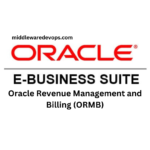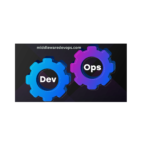Overview:
In this Blog, we will learn about the core aspects of Cloud Middleware in detail. Lets start with the few fundamental definitions:
Cloud computing involves the creation and deployment of cloud-native applications across various infrastructures. To access cloud resources and simplify infrastructure management, developers use middleware. Cloud-based applications are deployed inside containers on scalable cloud hosting by software developers.
Middleware is a type of software that can perform various functions such as managing data, providing application services, handling messaging, performing authentication, and managing APIs. By facilitating connectivity between different components, applications, and databases, middleware helps in the faster deployment of programs. Cloud middleware refers to a remote software platform that provides users access to all the middleware components for data management or communication purposes.
Core Definition of Cloud Middleware
Cloud middleware is a type of middleware that provides a layer of abstraction between the application and the underlying infrastructure. It consists of various middleware components, such as application servers, messaging systems, and databases, which are deployed on the cloud infrastructure. By providing a standardized approach to managing middleware components, Cloud Middleware simplifies the deployment and management of applications and services in the cloud environment.
Characteristics of Cloud Middleware
Cloud Middleware offers several unique characteristics that distinguish it from traditional middleware solutions. These include:
- Scalability: Cloud middleware can scale up or down easily to meet changing workloads and demands, allowing businesses to adjust resources on demand.
- Flexibility: Cloud middleware can be deployed on a variety of cloud environments, including public, private, and hybrid clouds, making it highly adaptable to a wide range of use cases.
- Agility: Cloud middleware enables businesses to rapidly develop and deploy new applications and services, reducing time-to-market and improving customer satisfaction.
- Resilience: Cloud middleware is designed to be highly resilient, with built-in redundancy and failover capabilities to ensure high availability and minimal downtime.
- Security: Cloud middleware provides robust security features, such as encryption, access control, and authentication, to ensure the protection of sensitive data.
- Efficiency: Cloud middleware is optimized for performance and efficiency, with streamlined middleware components that can improve the performance of applications and services.
- Cost-effective: Cloud middleware eliminates the need for businesses to manage their own middleware infrastructure, reducing hardware, software, and maintenance costs.
Benefits of Cloud Middleware
Cloud Middleware offers numerous benefits to businesses, including:
- Reduced costs: By eliminating the need for businesses to manage their own middleware infrastructure, cloud middleware reduces costs associated with hardware, software, and maintenance.
- Increased scalability: Cloud middleware enables businesses to scale their infrastructure resources up or down as needed, ensuring that they can handle changing workloads.
- High availability: Cloud middleware provides redundancy and failover capabilities, ensuring that applications and services are always available.
- Improved performance: Cloud middleware provides optimized and efficient middleware components, resulting in improved application and service performance.
- Flexibility: With cloud middleware, businesses can easily deploy and manage their applications and services across different cloud environments, including public, private, and hybrid clouds.
- Agility: Cloud middleware enables businesses to rapidly develop and deploy new applications and services, reducing time-to-market and improving customer satisfaction.
- Security: Cloud middleware offers robust security features, such as encryption, access control, and authentication, to ensure the protection of sensitive data.
Examples of Cloud Middleware
Several Cloud Middleware services are available in the market, including:
- AWS Elastic Beanstalk: AWS Elastic Beanstalk is a fully managed service that makes it easy to deploy and run applications in multiple programming languages.
- Microsoft Azure App Service: Microsoft Azure App Service is a fully managed platform for building, deploying, and scaling web apps and APIs.
- Google App Engine: Google App Engine is a serverless platform for building and deploying web and mobile applications.
Conclusion
Cloud Middleware is a vital component of cloud computing, enabling businesses to deploy and manage applications and services in a distributed, scalable, and flexible manner. With its numerous benefits and unique characteristics, Cloud Middleware is rapidly becoming the preferred choice for businesses looking to leverage the power of the cloud for their middleware needs.
Hope it helps. Cheers!!!






